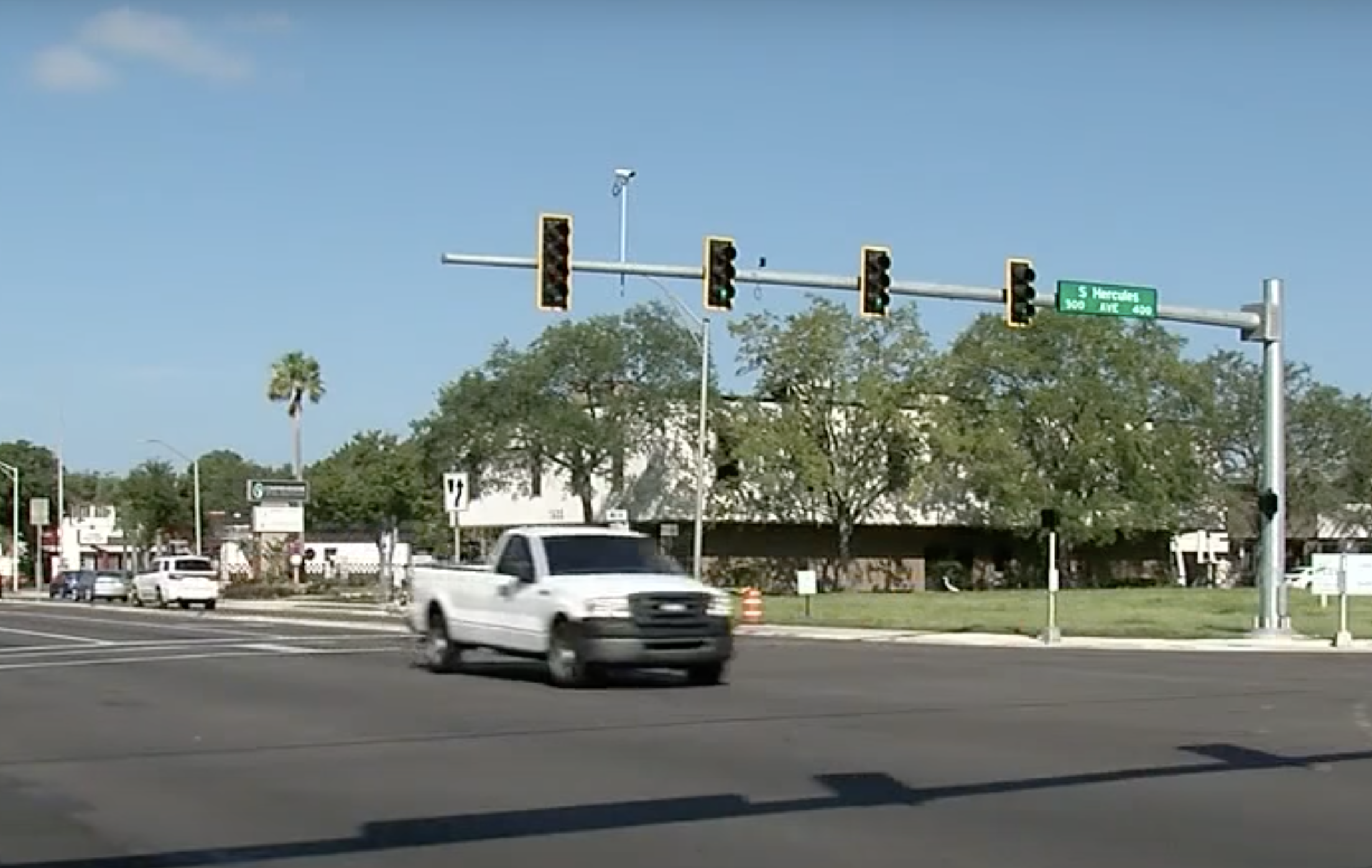Americans for Limited Government Foundation poll finds Virginians support motorist-friendly reforms
There is an ongoing and heated national debate over the growing practice of law enforcement using red light traffic cameras. More than 500 cities and other municipalities across the country have installed some form of red light camera systems to capture evidence of accidents and red light violations. Hundreds of others are either contemplating their usage or widening existing programs. But across the country, the use of these cameras as an aid to law enforcement is coming under strong attack, and legislatures are mobilizing to end these programs.
Currently, city and local governments in 22 states—Alabama, Arizona, California, Colorado, Delaware, Florida, Georgia, Illinois, Iowa, Louisiana, Maryland, Missouri, New York, North Carolina, Ohio, Oregon, Pennsylvania, Rhode Island, Tennessee, Texas, Virginia and Washington—and the District of Columbia use red-light cameras. Notably, while Texas enacted a bill banning the use of red-light cameras in 2019, some communities with existing contracts will be permitted to continue using cameras for the time being.
Communities in 16 states—Alabama, Arizona, Colorado, Georgia, Illinois, Iowa, Louisiana, Maryland, New Mexico, New York, Ohio, Oregon, Pennsylvania, Rhode Island, Tennessee and Washington—and the District of Columbia currently have speed camera programs in place. Georgia authorized speed cameras in school zones beginning in 2018. Pennsylvania enacted legislation in 2018 establishing a five-year pilot program for automated speed enforcement cameras in work zones on the Pennsylvania Turnpike, interstates and federal aid highways in the state.
Maine, Mississippi, New Hampshire, South Carolina, Texas and West Virginia prohibit both red-light and speed cameras. Montana and South Dakota prohibit red-light cameras, and New Jersey and Wisconsin do not allow speed cameras. Nevada prohibits the use of cameras unless operated by an officer or installed in a law enforcement vehicle or facility.
Across the country motorists are fighting back against these automated traffic enforcement mechanisms. In part, because of how high the fines can be. Fines for running red lights generally run around $100, with California having the nation’s highest red light fine at $490 per violation. Florida drivers who were caught by red light cameras paid more than $100 million in traffic fines last year. But whether the cameras made Florida’s roads safer, or just swelled state and city coffers, is an open question. Chicago has made an estimated $600 million in red light camera fines since 2004, generating over $54 million in revenue in 2017 in this city alone. Much of this revenue is redirected toward the cost of implementing and maintaining these programs and equipment.
In Virginia, the Coalition for Motorist Rights is parterning with Americans for Limited Government Foundation (ALGF) to put politicians on notice that voters will be looking closely at their attitudes toward predatory policies that impact drivers.
A new poll of Virginia voters commissioned by ALGF found strong support for motorist-friendly reforms and strong opposition to predatory towing and policing for profit.
With more than six million drivers in the Commonwealth of Virginia, motorist advocates are putting politicians on notices that voters will be
“I think what this poll shows is that Virginia voters, from across the political spectrum, are overwhelmingly opposed to taxation by citation schemes,” Richard McCarty, founder of the Virginia Coalition for Motorist Rights. “This poll also contains very bad news for two groups of crony capitalists: predatory towing companies and red light and speed camera companies. Candidates would be wise to take note and immediately get to work on finding solutions to address these voters’ concerns,” McCarty concluded.
ALG Foundation President Richard Manning said, “Virginians clearly are overwhelmingly opposed by the automated vehicle tax cameras which have little utility except to act as speed traps. Not surprisingly, the car tax is particularly reviled in the state. The next governor should reform Virginia’s laws to reflect the concerns of drivers that the existing system is punitive with little redeeming value on the safety side.”
Key findings:
Predatory towing
73.7 percent support reform to curb abuses
52.4 percent strongly support reform
Traffic ticket quotas
81.9 percent support banning them
65.6 percent strongly support a quota ban
Speed cameras
72.3 percent support banning them
52 percent strongly support a ban
Red light cameras
75.1 percent support banning them
51.4 percent strongly support a ban
Speed trap towns
77.6 percent support state laws to rein in speed trap towns
60.3 percent strongly support such legislation
Mandatory annual vehicle inspections
68.4 percent support a change in state law to only require inspections every two
years, rather than annually
Annual car tax
80.5 percent support abolishing the tax
61.4 percent strongly support abolishing the tax
Hypermetrics conducted the poll by phone between May 3-6 with 855 Virginians statewide responding. The margin of error was 3 percent.
Catherine Mortensen is Vice President of Communications for Americans for Limited Government.







